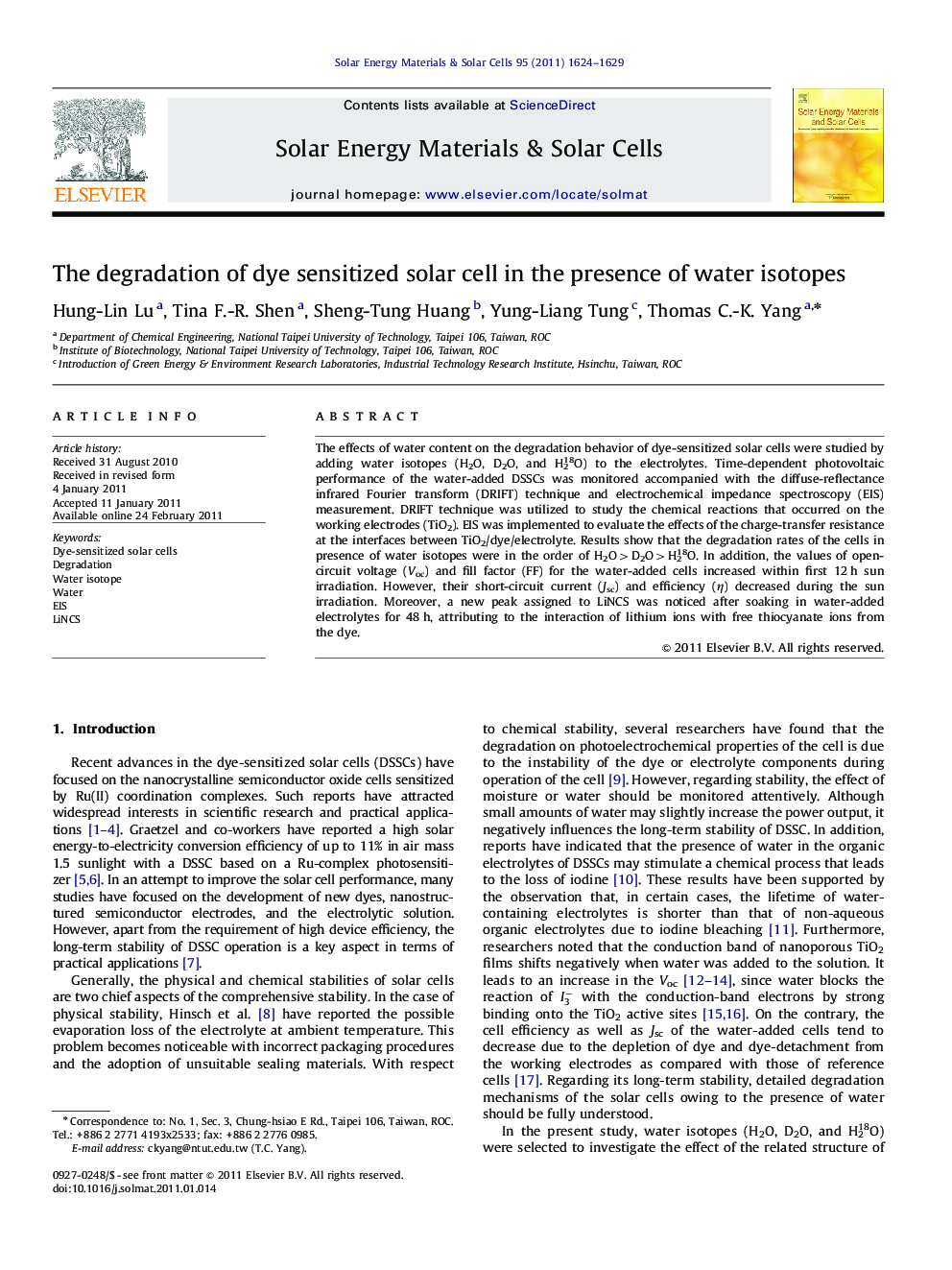| Article ID | Journal | Published Year | Pages | File Type |
|---|---|---|---|---|
| 78831 | Solar Energy Materials and Solar Cells | 2011 | 6 Pages |
The effects of water content on the degradation behavior of dye-sensitized solar cells were studied by adding water isotopes (H2O, D2O, and H218O) to the electrolytes. Time-dependent photovoltaic performance of the water-added DSSCs was monitored accompanied with the diffuse-reflectance infrared Fourier transform (DRIFT) technique and electrochemical impedance spectroscopy (EIS) measurement. DRIFT technique was utilized to study the chemical reactions that occurred on the working electrodes (TiO2). EIS was implemented to evaluate the effects of the charge-transfer resistance at the interfaces between TiO2/dye/electrolyte. Results show that the degradation rates of the cells in presence of water isotopes were in the order of H2O>D2O>H218O. In addition, the values of open-circuit voltage (Voc) and fill factor (FF) for the water-added cells increased within first 12 h sun irradiation. However, their short-circuit current (Jsc) and efficiency (η) decreased during the sun irradiation. Moreover, a new peak assigned to LiNCS was noticed after soaking in water-added electrolytes for 48 h, attributing to the interaction of lithium ions with free thiocyanate ions from the dye.
Graphical AbstractLong-term stability of dye-sensitized solar cells with water or water isotopes in the electrolytes was investigated. The efficiencies of cells with water in the electrolytes declined faster as compare to other water isotope.Figure optionsDownload full-size imageDownload as PowerPoint slideResearch highlights► We investigated the effects of the water isotopes on degradation of DSSC. ► The change in the redox potentials and Fermi level caused an increase in Voc upon water addition. ► The energy-conversion efficiencies (η), Jsc, and Voc decreased with increasing amounts of isotopic water.
